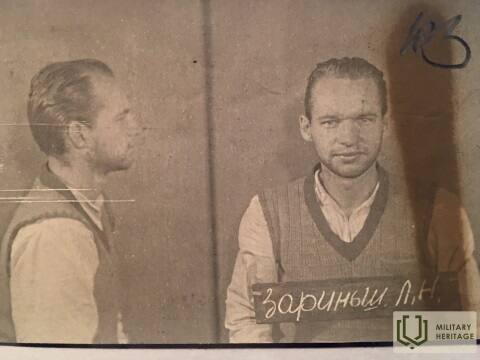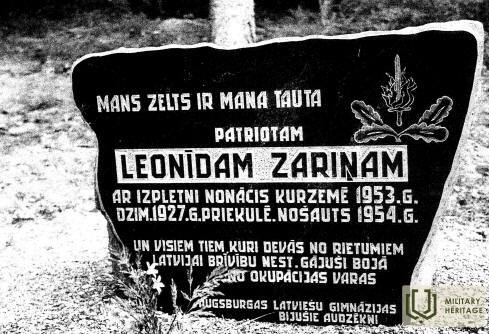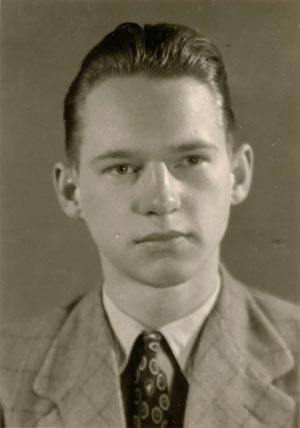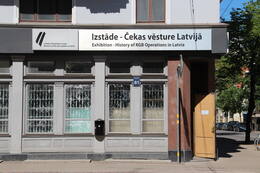US CIA paratrooper Leonids Zariņš - "unfit for recruitment" by the Cheka
Leonid Zariņš was recruited as a CIA agent in the USA and in 1953 he crossed the USSR border on a plane from Germany and parachuted near Auce. Unfortunately, one of the contacts he was supposed to contact had turned out to be a double agent, and Leonid was soon arrested. He refused to cooperate with the Chekists and was shot without trial in 1954.
Leonids Zarins
https://laikraksts.com/raksti/6558
JG271 Rolf Ekmanis. Radio Free Europe / Radio Liberty - VI (zagarins.net)
Newspaper "Latvietis": Memories of the Baltic University https://www.laikraksts.com/raksti/6558
Related timeline
Related objects
Exhibition in the KGB Building "History of KGB Operations in Latvia"
The former USSR State Security Committee (commonly known as Cheka) building is open for visitors. Here chekists imprisoned, interrogated and murdered Latvian citizens who were considered opponents by the occupation regime. There is also an exhibit from the Latvian Occupation Museum on the activities of Cheka in Latvia. Guided tours of the prison cells, corridors, basement and courtyard are available. The house was built in 1911 and it is one of the most beautiful buildings in Riga. Called the ‘Corner House’ by the people, it was the scariest symbol of the Soviet occupation regime in Latvia, and also one of the pillars of power of the USSR. Cheka operated from the Corner House during the occupation from 1940 to 1941 and then again from 1945 to 1991. Tens of thousands of Latvians were affected by direct political persecution. The fight against enemies of Soviet rule continued also after World War II. Cheka’s approach towards its operation slightly changed after Stalin’s death. Physical torture was replaced by psychological terror. The majority of Cheka agents were Latvians (52%). Russians were the second largest group – 23.7%. 60.3% of the agents were not members of the Communist Party. 26.9% of the agents had higher education. The system was designed in a way to involve local people and thus have greater control over the society. Staff documents and service records are located in Russia. And these materials have not been made available to Latvian authorities and researchers.








